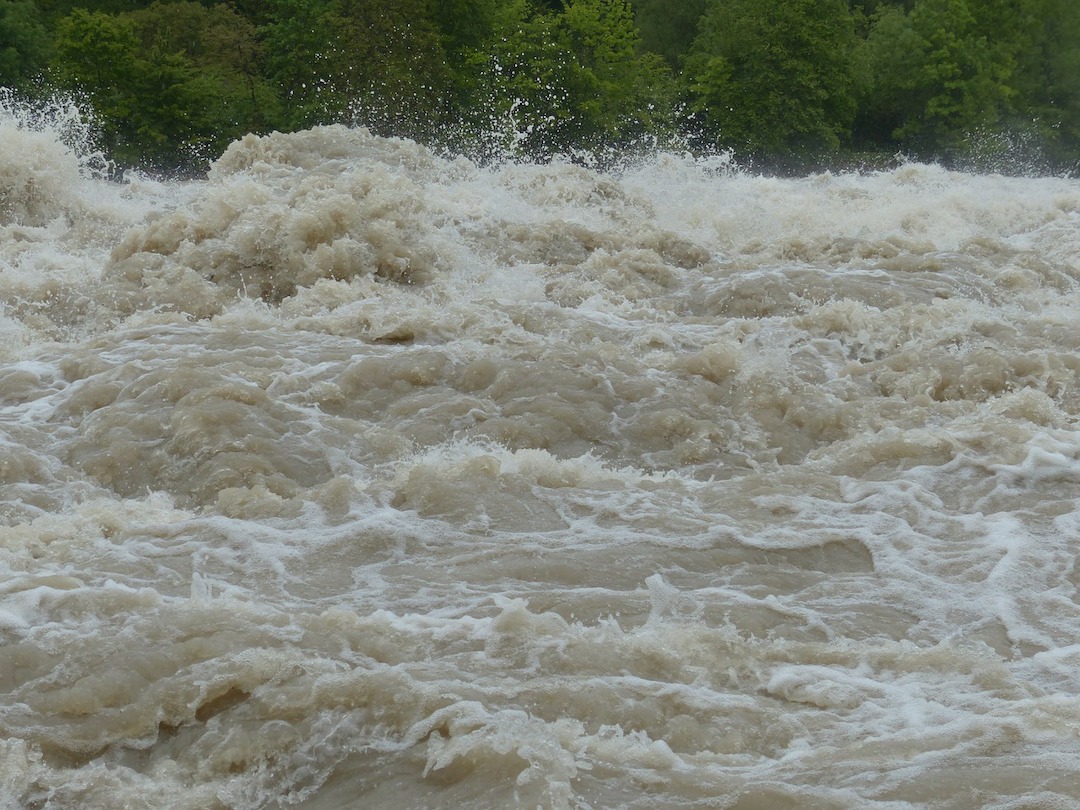Recent storms such as Hurricanes Ida and Henri that claimed dozens of lives due to flooding point to the need for cities to increase efforts to stem the impact of heavy rainfall.
The recent storms support the notion that climate change is making the impact of large storms worse. The atmosphere holds more water as temperatures rise. The air becomes 4% more saturated with water for every 1-degree Fahrenheit that the planet warms. Thus, the heaviest downpours in the Northeast now drop 55% more rain compared to those events in the 1950s, according to the most recent National Climate Assessment.
Better data about flood risks could help cities make massive rainfall events less deadly, but data gathering has not kept up with the latest conditions. The Federal Emergency Management Administration’s flood maps are outdated and don’t account for the kind of flooding directly caused by extreme rainfall.
Cities must upgrade urban stormwater infrastructure including street-level drains, concrete sewers that can capture and hold water, roadside ditches, and flood-control reservoirs to cope with the new reality. In addition, more green spaces could help absorb some rainfall, preventing it from entering drains. These steps can help, but it remains to be seen if it is even possible to engineer our way to 100% protection against flooding.
Related Stories
| Nov 10, 2011
WaterSense standard for weather-based irrigation controllers unveiled
The U.S. Environmental Protection Agency’s (EPA) WaterSense program has released a final specification for weather-based irrigation controllers—the first outdoor product category eligible to earn the WaterSense label.
| Nov 10, 2011
Advocate seeks noise reduction measures in California building codes
A former chief building inspector for San Francisco wants to enact building codes that would limit noise levels in restaurants and other spaces open to the public.
| Nov 10, 2011
California seismic codes spur flurry of hospital projects
New seismic requirements in California are helping to drive a flurry of new projects and retrofits in the state’s health care sector.
| Nov 10, 2011
Senate ready to repeal 3% withholding on government contracts
The U.S. Senate is set to approve legislation that would eliminate a law requiring federal, state, and local governments to withhold 3% of their payments to contractors and companies doing business with the government.
| Nov 10, 2011
New legislation aimed at improving energy efficiency in federal buildings
Recently introduced legislation, the “High-Performance Federal Buildings Act,” would help federal agencies save energy and money by improving building performance.
| Nov 4, 2011
CSI and ICC Evaluation Service agree to reference GreenFormat in ICC-ES Environmental Reports?
ICC-ES currently references CSI's MasterFormat and other formats in all of its evaluation reports. The MOU will add GreenFormat references.
| Nov 3, 2011
House Votes to Kill 3% Withholding Requirement; Senate Yet to Vote
The U.S. House of Representatives voted last week to repeal a 3% IRS withholding tax on businesses that do work for the government.
| Nov 3, 2011
OSHA Publishes Information on Rights and Safety
OSHA recently published new and revised information that explains workers’ and employers’ rights, as well as how to protect workers from hazards in the construction industry.
| Nov 3, 2011
Sierra Club Critical of Albuquerque Mayor’s Push to Weaken Green Code
The mayor’s plan to move to a less environmentally friendly code would mean confusion for people in the construction industry and a loss of energy efficiency and money for consumers, said Shrayas Jatkar of the Sierra Club.
| Nov 3, 2011
Lax Code Enforcement Blamed for Deaths in Turkey’s Earthquake
Despite tough safety codes approved a decade ago after earthquakes killed 18,000 people, lax enforcement led to hundreds of deaths after a recent earthquake in Turkey.









